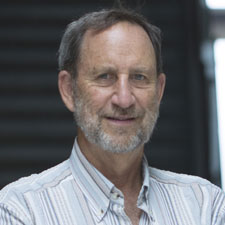
PhD, P.Eng.
Professor Emeritus, Industrial Engineering
Email: milgram@mie.utoronto.ca
Research Group: Ergonomics in Teleoperation and Control
Research Area
Human Factors
Research Interests
Human Factors issues related to navigation, manipulation and control in 3D environments; human-machine interfaces for teleoperation; human factors issues in medicine, especially surgery and anaesthesiology; modelling of attentional workload.
Bio
Paul Milgram is a Professor in the Mechanical & Industrial Engineering Department at the University of Toronto, where he specialises in Human Factors Engineering. He teaches courses in engineering psychology, research methods in human factors, and calculus.
Professor Milgram’s research theme relates to display, control and navigation issues in 3D (mixed reality) environments. His recent research has extended his long-term work with (stereoscopic) augmented reality (AR) to focus on applying digital imaging processing for enhancing displays for teleoperation, as well as applying AR displays for facilitating navigation. Application domains for his research include surgery, anaesthesiology, telerobotics, air traffic control and automobile driving.
Before joining U of T in 1986, Professor Milgram worked for 4 years as a senior human factors engineer at the National Aerospace Laboratory, in Amsterdam, prior to which he was a post-doctoral researcher at the TNO Institute for Perception, in Soesterberg, Netherlands. His research leaves abroad have included ATR in Kyoto, Japan (1993-94); the Centre d’Etudes de la Navigation Aérienne (CENA) in Toulouse, France (1999-2000); the Universitat Politécnica de Catalunya in Barcelona (2004); the Italian Institute of Technology in Genoa (2010); the Indian Institute of Technology Madras, in India (2011); and the International University of the Vietnam National University in Ho Chi Minh City (2017-18).
In the 1980s, Dr. Milgram developed the PLATO visual occlusion spectacles, and his company, Translucent Technologies, currently provides these worldwide, for research on, among other things, automobile interface design, visual perception, psycho-motor coordination, sports training and sports medicine, neurological disorders, and cognitive sciences.